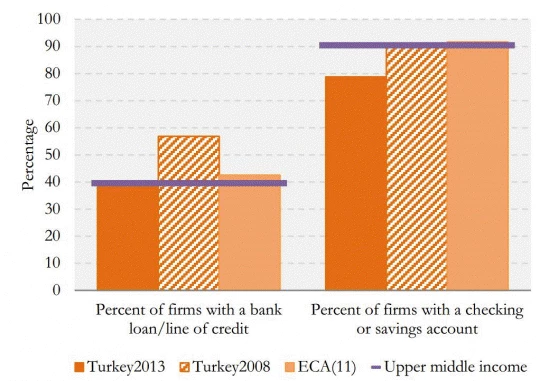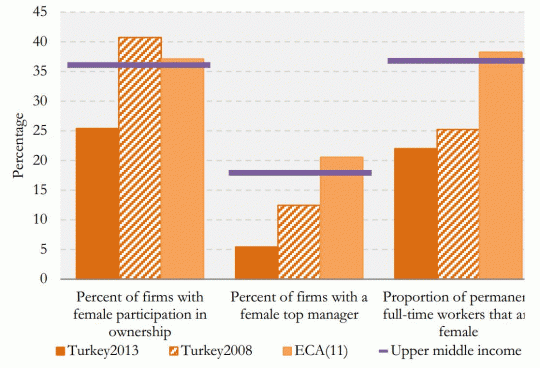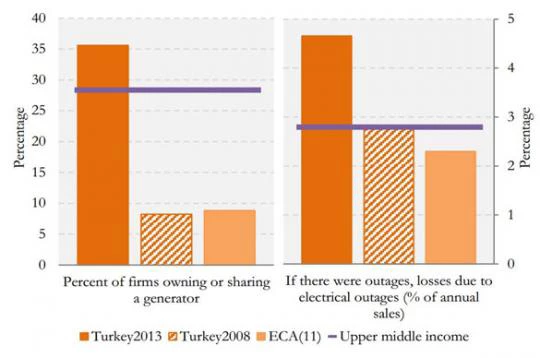One of the primary goals of the Enterprise Surveys (ES) is to provide high quality data about the business environment based on the experiences of firms. Given how little is known about the private sector in developing economies, this provides much needed information.
The recently released Turkey Enterprise Survey consists of 1344 firms across seven regions and nine business sectors. Firms interviewed for the ES are formal private firms operating in non-agricultural, non-extractive private sector with five or more employees. In this post we will focus on a few highlights for the standard ES firms.
First of all, the reliability of electricity in Turkey appears to be relatively poor. For establishments in Turkey, the reported losses due to electricity outages are around five percent of their annual sales. In addition there is an expanded reliance of electricity from generators. Percentage of firms owning or sharing generators have increased from eight percent in 2008 to 36 percent in 2013. On average 0.3 percent of electricity came from generators in 2008, which has drastically increased to 22 percent in 2013 (see figure 1 below). Moreover, around 19 percent of Turkish firms are entirely energy self-sufficient, which means 100 percent of their electricity comes from their own or shared generators.
Figure 1: The reliability of electricity in Turkey is poor compared to other Europe and Central Asia (ECA) countries
Secondly, the use of formal finance seems to have declined in Turkey. Use of credit through banks by Turkish firms remains low. In 2013 only 40 percent of firms had a bank loan or line of credit, compared to 57 percent in 2008. Furthermore, the proportion of investments financed by banks decreased from 38 percent in 2008 to 17 percent in 2013. The share of firms with a checking or saving account decreased from 91 percent in 2008 to 79 percent in 2013 (see figure 2 below).
Figure 2: Bank financing shows a downward trend in Turkey

Lastly, the participation of women in the private sector in terms of workers, ownership, and management has declined in Turkey. In 2013 only 5 percent of firms were managed by a female top manager compared to 12 percent in 2008. This is lower than the Europe and Central Asia (ECA) regional average of 19 percent. Moreover, the percentage of firms with female participation in ownership decreased from 41 percent in 2008 to 25 percent in 2013. Proportion of women among all permanent workers in the firm decreased as well, from 25 percent in 2008 to 22 percent in 2013 (see figure 3 below).

For more detailed survey coverage please see the Country Highlights document and the related country page.




Join the Conversation